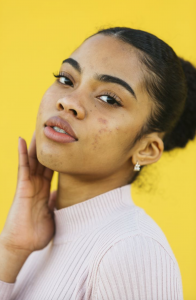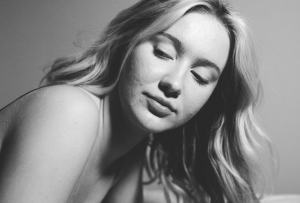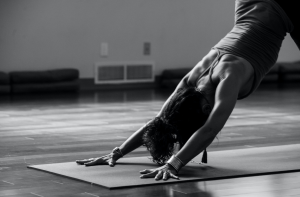What is Hormonal Acne and How to Treat It
Acne is the most common skin condition in the US, affecting about 80% of the population at some point in their lifetime. While it’s good to know that you’re not alone, it doesn’t make the condition any less frustrating. Roughly 50% of women in their 20s and 25% in their 40s will get hormonal acne. Although hormonal acne can affect both men and women, most cases occur in women.
What is Hormonal Acne?
Hormonal acne is acne that is associated with fluctuations in hormones. Although you typically associate changes in hormones with puberty, hormonal acne can affect adults of all ages. Hormonal acne is tied to the overproduction of sebum, an oily substance in the skin glands. It’s this substance that clogs up pores and leads to symptoms, such as:
-
Blackheads
-
Pimples
-
Papules (raised skin tissue)
-
Pustules (bumps in the skin that contain pus)
-
Whiteheads
-
Cysts (fluid-containing pockets under the skin)
Hormonal acne can occur on the neck, back, face, chin, jawline, and around the mouth. It affects people differently, so you may not have the same symptoms as someone else. Changes in hormones, like before or after menstruation, can trigger hormonal acne. So, if you notice acne that’s cyclic throughout the month, this could be a sign of hormonal acne.
What Causes Hormonal Acne?
When you have hormonal acne, it means that it’s caused by hormonal changes that increase the production of sebum. Sebum, bacteria, dead skin cells, and dirt interact, resulting in clogged pores and acne. Causes of hormonal acne include:
-
Puberty
-
Menopause
-
Menstruation
-
Polycystic ovary syndrome
Researchers believe that acne is often due to genetic predisposition or fluctuating hormone levels. There’s also evidence that suggests that adult-onset acne may be associated with the consumption of hormones in drugs and food.
You can read more about the causes of acne here.
Hormonal Acne Diet: What Foods to Eat
While controlling your hormones is tough, other factors can make hormonal acne worse, like stress, pollution, humidity, poor diet, and picking at the skin. You can’t always control how your body reacts to changes in hormones, but you can eat a more acne-friendly diet. One approach is to follow an anti-inflammatory diet. Here are some tips for this diet:
-
More fruit and vegetables
-
Cut out or at least reduce heavily fried foods and simple carbohydrates
-
Reduce animal products and opt for organic animal foods with no exogenous hormones
-
Boost water intake
-
Eat omega 3’s like flaxseed, wild-caught fish, and chia seeds
-
Foods high in B vitamins like dark leafy green vegetables
-
Avoid cow’s milk and high glycemic index foods like white bread and sugary foods
Hormonal Acne Treatment: How to Control Hormonal Acne
While there is still research needed to confirm the precise link between acne and diet, there are things you can do to help control and treat hormonal acne. As hormonal imbalances and fluctuations cause hormonal acne, there is a range of treatment options to consider. The best treatment will depend on the severity of outbreaks and your type of acne.
Topical Creams and Retinoids
Traditional acne treatments include topical creams and retinoids. Retinoids are derived from vitamin A. Depending on your type of acne and severity, there’s a range of creams available that target different things. Although you can get creams over the counter, you may want to discuss a skin treatment plan with your doctor.
Skin Cleansing
Keeping your skin clean is beneficial for acne. Wash your face in the morning and evening and avoid wearing any heavy products on the skin that could clog pores. Consider using oil-free moisturizer and adapt your skincare routine to your skin. For instance, if you get oily skin at the beginning of the month, use specific products to target extra oil. Another option is to use tea tree oil which has been found to stop the growth of bacteria associated with acne.
You can read more about tea tree oil and acne here.
Stress Reduction
Stress can trigger hormonal changes that can make acne worse. So, finding a way to relax and reduce stress helps combat hormonal acne. Stress can also make it difficult to fall asleep. At the same time, poor sleep can exacerbate stress. Relaxation techniques like yoga, meditation, and deep breathing can help to reduce stress levels that could otherwise make acne worse by triggering hormonal changes.
If you notice that you’re getting acne breakouts around the same time each month, it could be your hormones to blame. Adopt lifestyle habits that help control hormonal acne like a healthy diet, good sleep, and low stress. Treating acne is an individual journey, so try to be patient.
For persistent acne or any concerns, it’s important that you discuss a treatment plan with your healthcare provider.
Join Our Community
Archives
- January 2023
- December 2022
- September 2022
- August 2022
- June 2022
- May 2022
- April 2022
- March 2022
- February 2022
- January 2022
- December 2021
- November 2021
- October 2021
- September 2021
- August 2021
- July 2021
- June 2021
- May 2021
- March 2021
- September 2020
- August 2020
- July 2020
- June 2020
- May 2020
- April 2020
- March 2020
- February 2020
Subscribe

Sign up to receive FREE toolkit
From Dr. Hyman, #1 NY Times & Amazon Author
We never spam or sell your e-mail






Follow Our Every Move